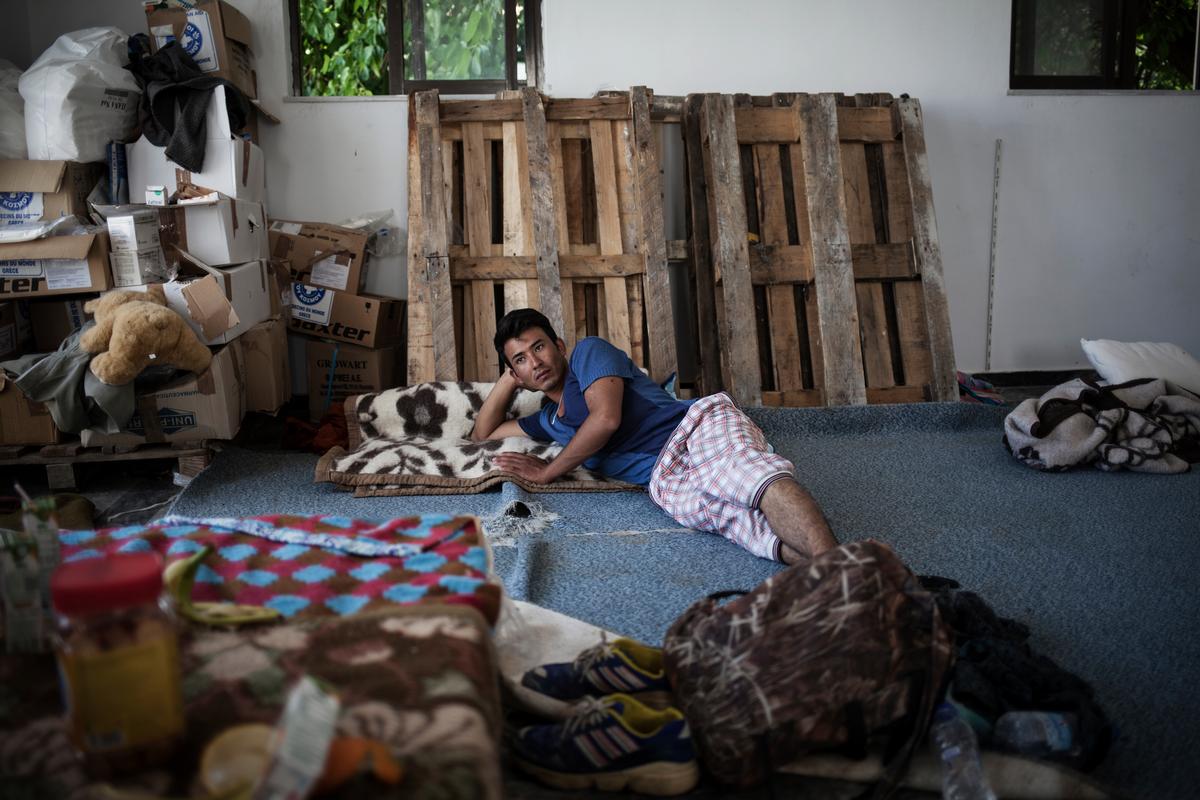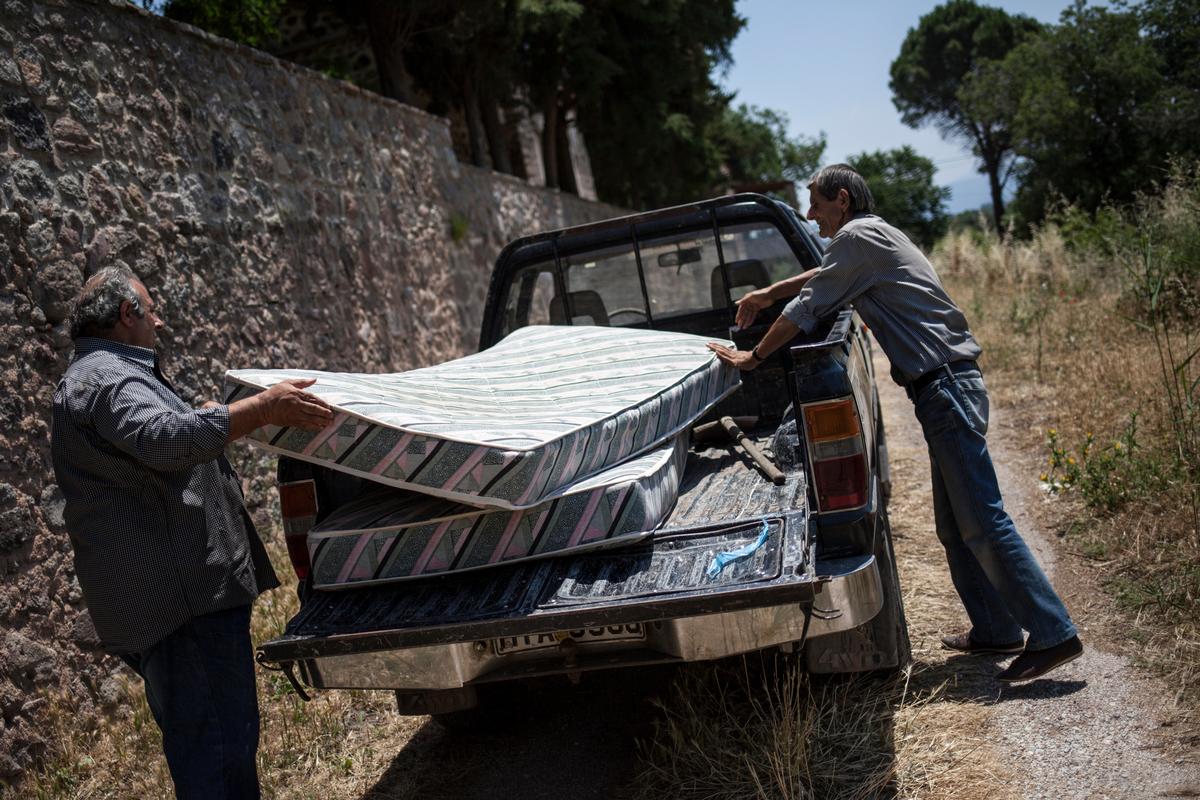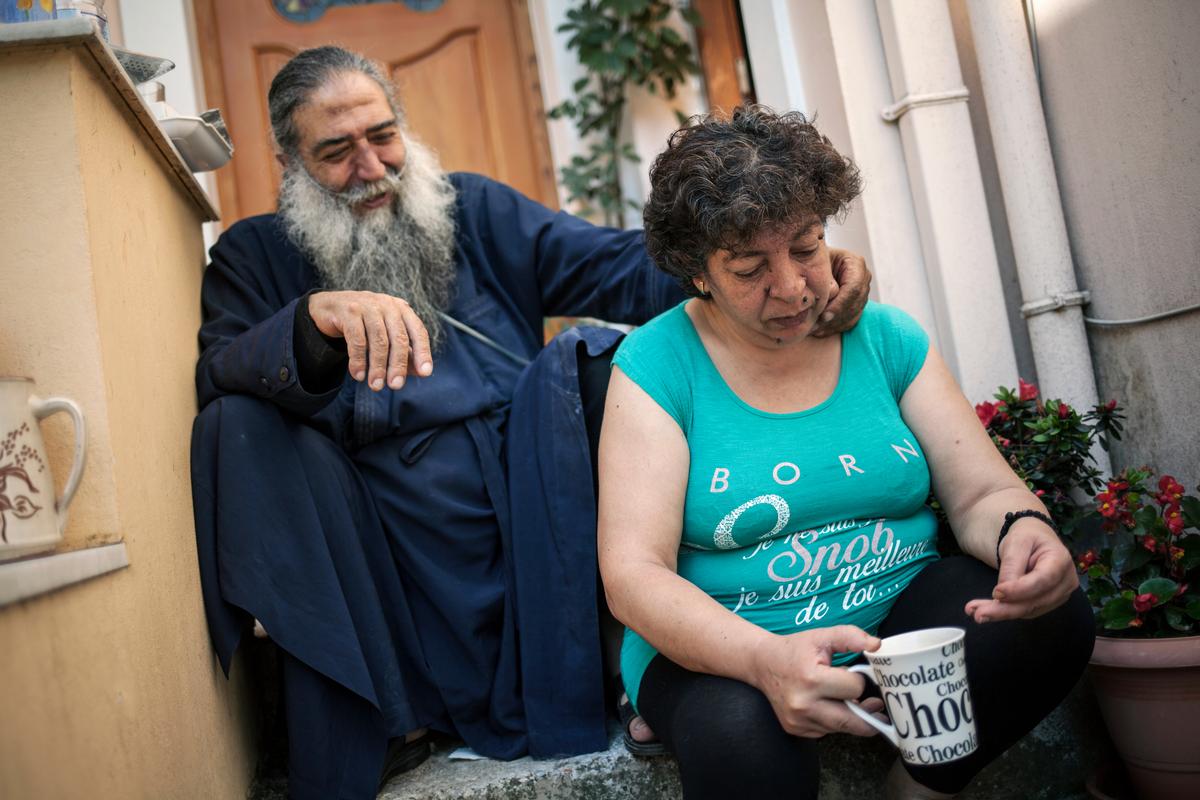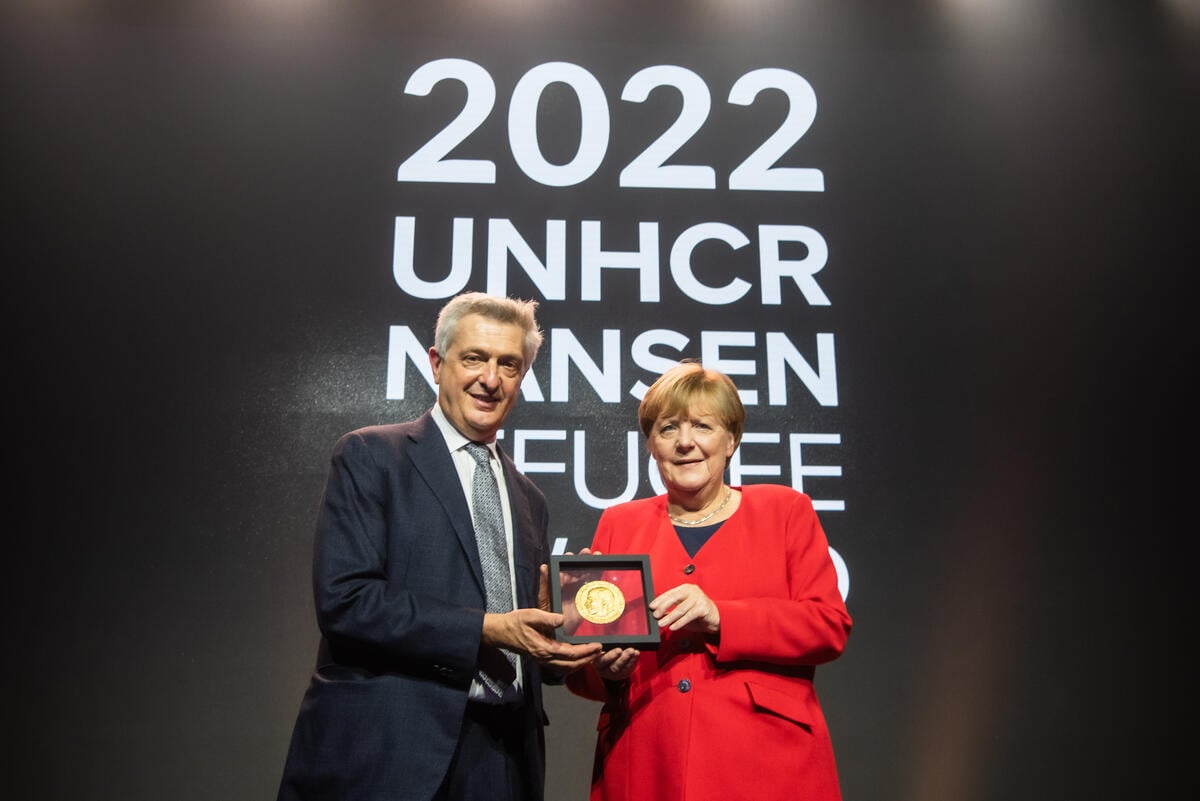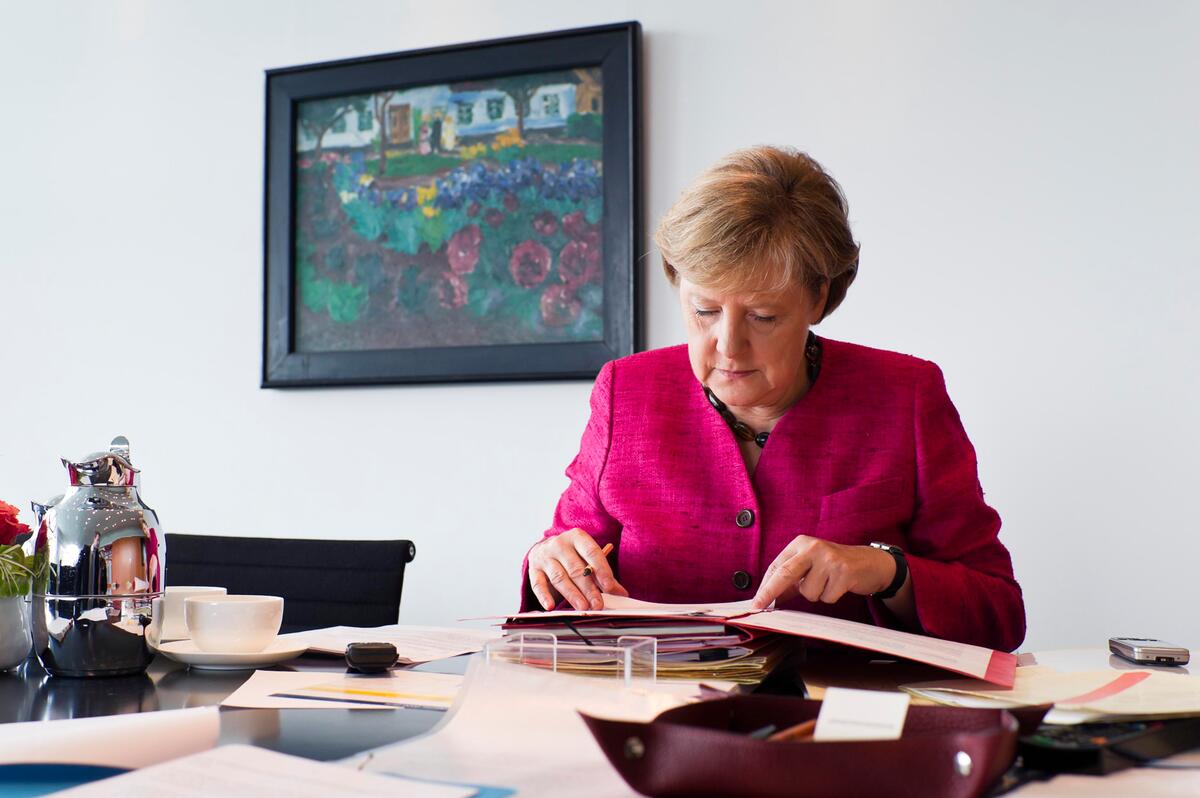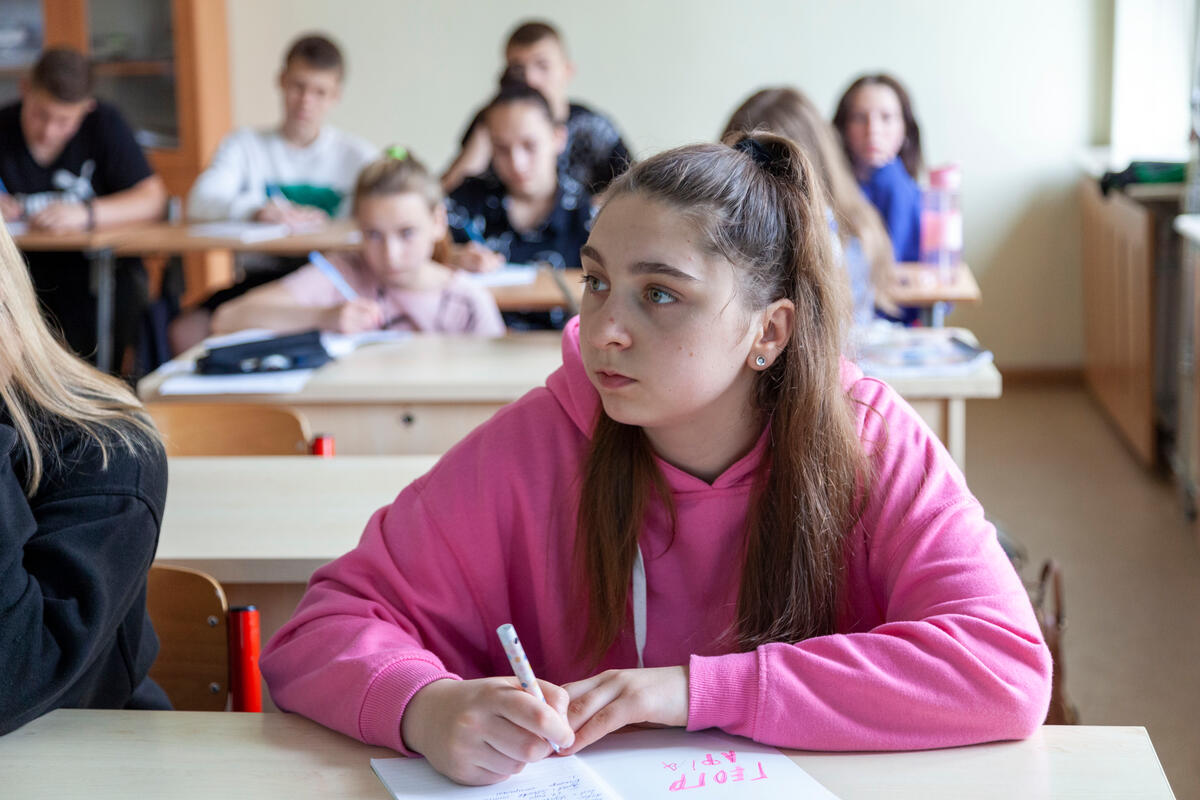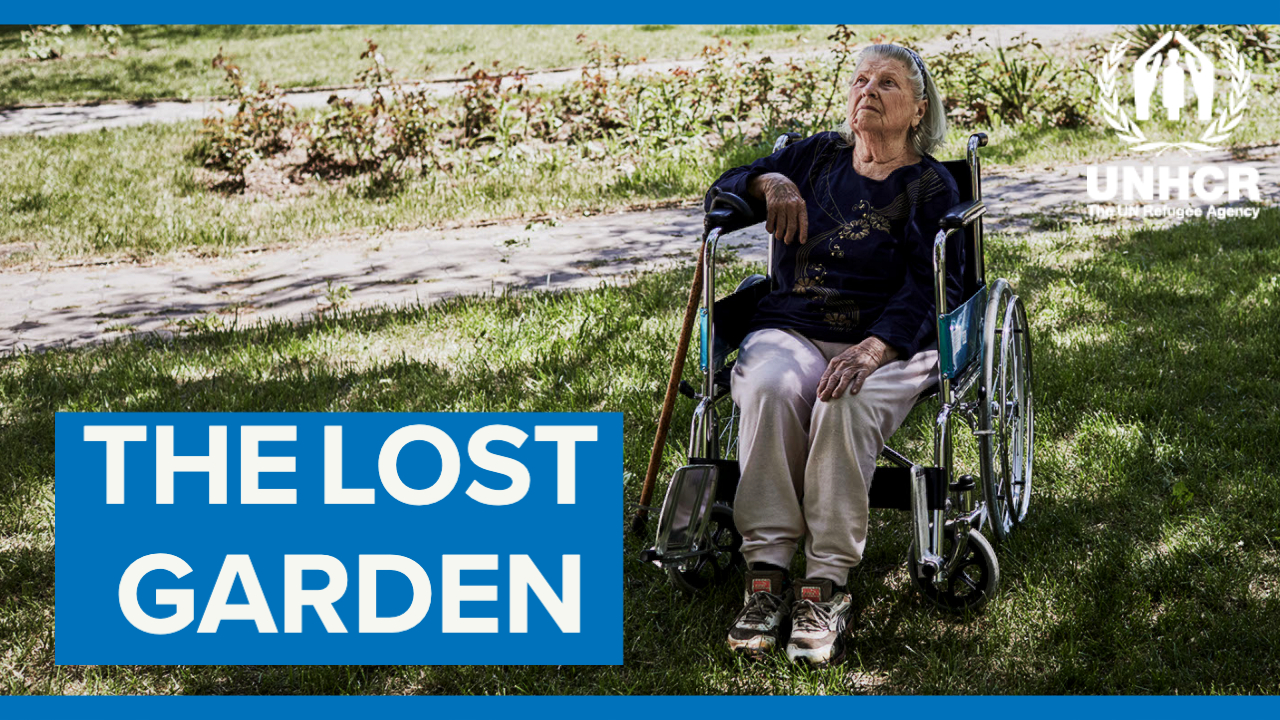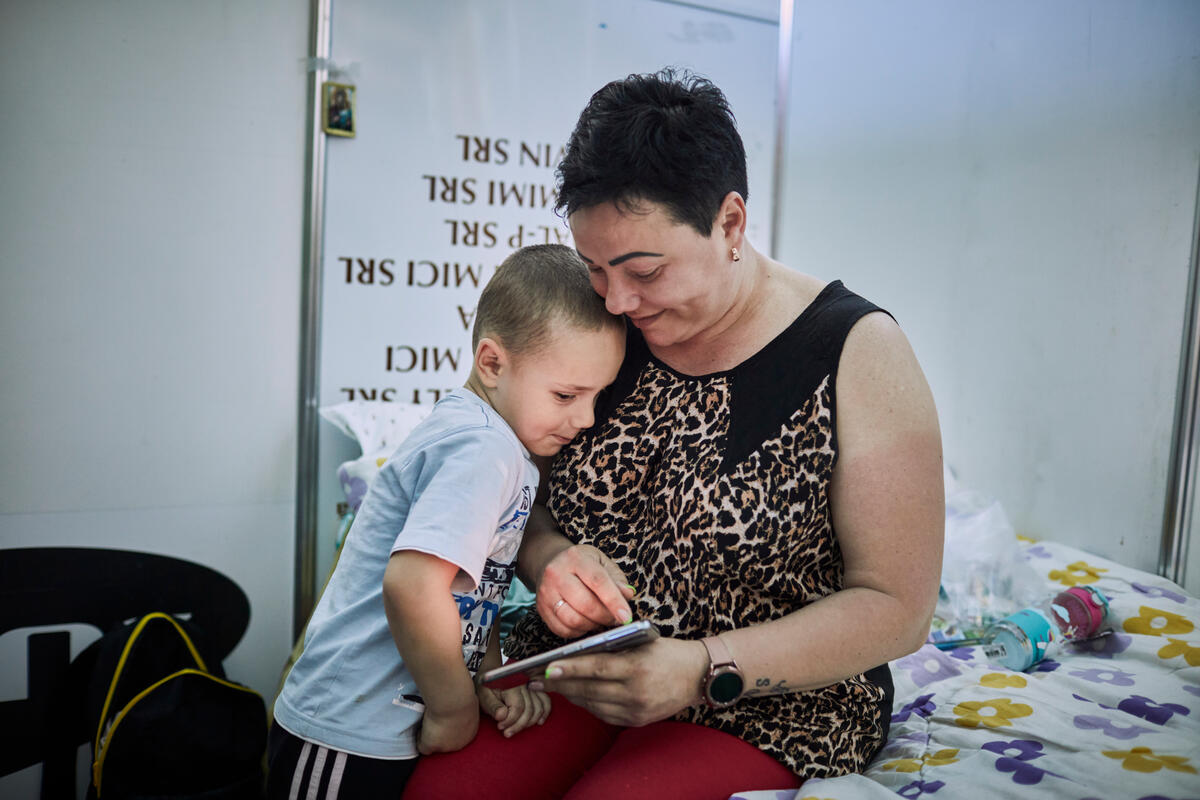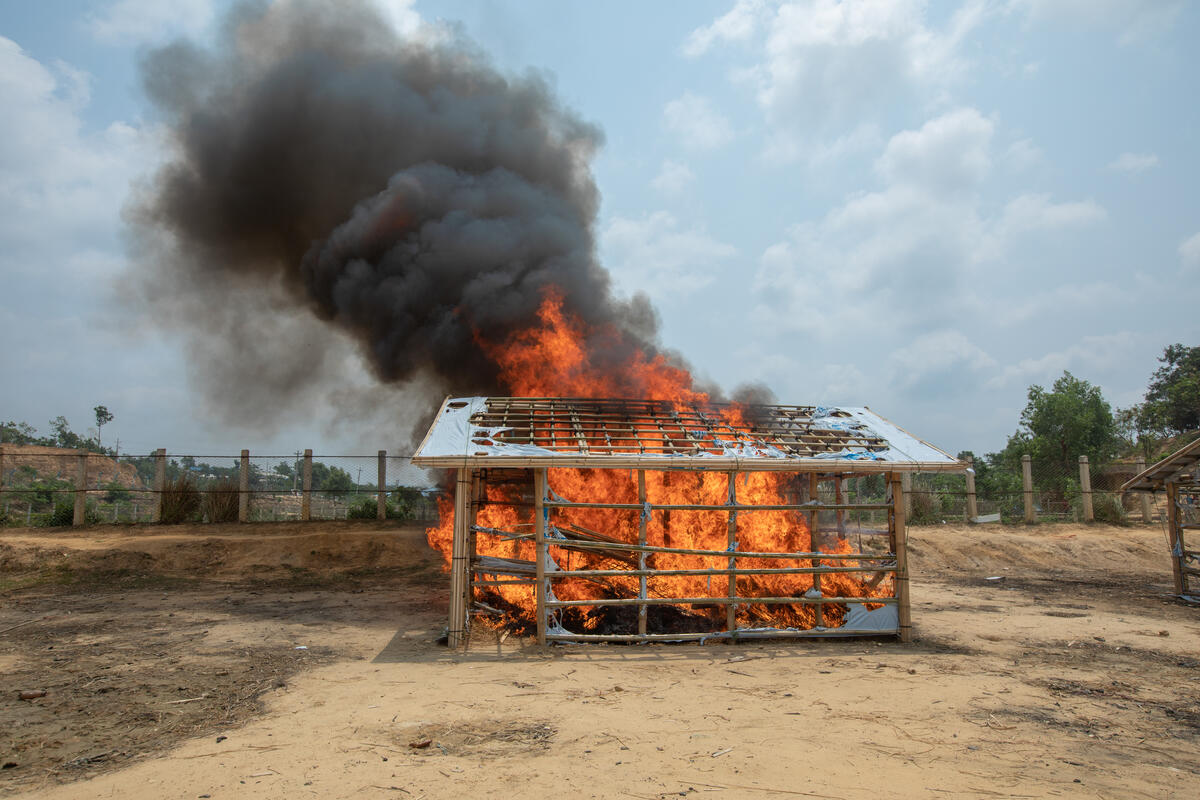A Good Samaritan in Greece
Father Efstratios Dimou – "Papa Stratis" to all and sundry – sits in the front yard of his house, surrounded by flowers in earthenware pots, a small apricot tree and his big bear-like dog, Siba. Overhead on the Greek island of Lesvos, swallows fly in and out of a nest on the wall.
He wears a dark blue cassock, a pony tail and leather sandals which complement his big grey-blue mischievous eyes and long bushy grey beard. He suffers from a chronic respiratory condition and has to be permanently connected by a tube to a tank that supplies oxygen directly to his lungs. This does not stop him from smoking the occasional cigarette.
Papa Stratis, along with other local volunteers in the village of Kalloni, has been helping refugees since 2007 through the NGO 'Agkalia'. In all these years he reckons that he has helped some ten thousand people, including a few locals fallen on hard times. But never before has he seen so many refugees looking for help.
"Every day between one and two hundred people come to Kalloni," the 57-year old Orthodox priest says. "The local people tell them to come to us for help. We give them food, water, milk for the babies, shoes, clothes. They can stay here too: we have blankets, mattresses on the floor."
"They are life-seekers, they search for life, hope and the chance to live another day."
Chased by the war in Syria and by conflict and persecution in other places, more than 26,000 refugees have arrived in Lesvos since January. They cross the short stretch of water that separates the island from Turkey in rubber dinghies and wooden boats. Many of them land on the remote northern coast and walk for up to 15 hours to Papa Stratis' temporary shelter in Kalloni.
"I have seen small children with blisters on their feet and pregnant women holding their bellies and crying in pain," he says sadly. "These people are not migrants, they do not choose to come here. They are children of war, fleeing bullets. They are life-seekers, they search for life, hope and the chance to live another day."
With local authorities overwhelmed by the 64,000 refugee arrivals to Greece since the beginning of the year, local activists like Papa Stratis and the network of volunteers "Village All Together", are often taking on the sole responsibility of caring for the refugees on the Greek islands.
"We have no external funding," he explains with a smile. "We depend completely on the generosity of the local people."
His battered wine-red Citroën Xantia – he calls it "Tarzan" for its ability to scramble onto the island's most inaccessible corners – is always packed with food, water and spare clothes.
"One day we found a baby asleep in his mother's arms at the beach. We wanted to give him milk but didn't have a bottle and he couldn't drink from a glass. It was in the middle of the night, so we woke up all the pharmacies in town until we found a bottle," Papa Stratis chuckles cheekily.
Hard-hit by a pervasive debt crisis and circumscribed by economics, politics and geography, small communities in the Greek islands are having to deal with the fallout of conflicts far away of which they know and understand little. Many islanders are wary of the destitute refugees who arrive in their midst. Others worry about the impact their presence will have on tourism. But many, like Papa Stratis, are rolling up their sleeves and stepping forward to help.





